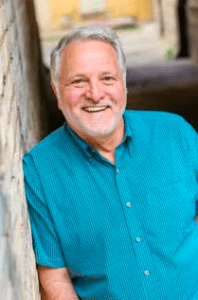A year ago, within 74 seconds Philando Castile was dead from a rapid firing police officer who thought Philando was reaching for his lawfully right-to-carry gun. Philando shouted to the officer that he did legally have a gun. Philando’s girlfriend testified that Philando was complying with the officer to show his ID. In the quick, panicked confusion, a few seconds later Philando died. The police officer was charged with second degree manslaughter and two counts of reckless endangerment because both Philando’s girlfriend and his daughter were in the car.
Just last week, the police officer who killed Philando was acquitted on all charges. Outrage erupted in the Twin Cities and Philando’s mother cried into the microphones, “The system continues to fail black people. My son loved this city and this city killed my son and the murderer gets away! Are you kidding me right now?”
Dr. Dennis R. Edwards is the African American pastor of Sanctuary Covenant Church in North Minneapolis, MN. Dennis is also the author of The Story of God Bible Commentary: 1 Peter. I read with heightened interest Dr. Edwards’ commentary on the unjust suffering of God’s people who also lived in a “system that continue[d] to fail [Christian] people.” How do Christians live into the Story of God when unjust suffering runs rampant? Not just in the church of Peter’s time, but for the church in Dr. Edwards’ city? For Black brothers and sisters in the USA who live in a justice system that has intentionally been set against them for over 200 years?
Chapters Six and Seven of Dennis’s commentary cover 1 Peter 2:11-25. Both fine scholarship and precise pastoral direction mark these chapters. In the verses at hand Peter refers to all believers who are “slaves to God” (2:16) and, then, specifically to Christians who were actual household “slaves” (2:18) to Roman despotai (“masters”). Dr. Edwards writes, “As soon as we read the opening word of this section [2:18-25], ‘slaves,’ we may be tempted to leave Peter’s context and move forward through the ages to a time more familiar to us” (113). Dennis, then, refers to slavery in European nations and in the colonies of the New World, and on into the United States of America. He suggests the current slavery of boys and girls in human trafficking for sexual abuse. But Dennis wisely keeps the reader focused on the practice of slavery in Peter’s time before he moves on to discuss current oppressive systems. Dennis, first, keeps us with Peter who is writing to offer direction on how Christian slaves are live under unjust suffering. Using an American story as an illustration, Dennis makes the point that to be called “an Uncle Tom,” while meant to be denigrating to Black people who are subservient to white oppression, actually is a name meant by Harriet Beecher Stowe to show how Christians, slave and free, express strength in their response to unjust suffering, “thereby shaming those who would not denounce the institution of slavery” (fn 9, 116).
In the section Live the Story, Dennis begins with “The Difficulty of Dealing with Slavery.” Using the stories in two different movies—Django Unchained and 42—Dennis comments on the two prevailing ways African Americans respond to oppression: violent retaliation (Django) and enduring racist abuse (Jackie Robinson in 42). Against some common misconceptions, Dennis argues that slavery was very vicious in Peter’s time. Retaliatory violence could have been a gratifying response. Dennis keeps the reader oriented toward a cruciform response (2:21-25) which is definitely not, as Dennis argues, an endorsement of the human indignity and oppression in slavery.
Dennis also writes about “Nonretaliation and Protest.” He comments, “As an urban pastor, I’m frequently confronted with the reality of violence. … It is not a theoretical issue or the story of people ‘over there.’ Young people in the United States die regularly through violence.” Using Jesus’s teaching in Matthew 5:38-44 and Paul’s counsel in Romans 12:17-21, Dennis remarks, “One thing that marks Christians—in ancient times as well as current—is our conformity to the life of Christ. …But though we do not retaliate in kind, there may be a place for peaceful protest. …Peter does not prohibit Christians from speaking out against what is wrong in society. … Christians have the ability to protest injustice and make prophetic calls to what is right” (124). Our God, in Jesus Christ, is “the God of the oppressed” (124). Jesus is the “Overseer” of our lives and the Righteous Judge Who will make everything right.”
I admire Dennis Edwards and pray for his effective Christ-like voice to his church, to his city, and to this fractured world. There was no good reason for the death, the death of Philando Castile.
















